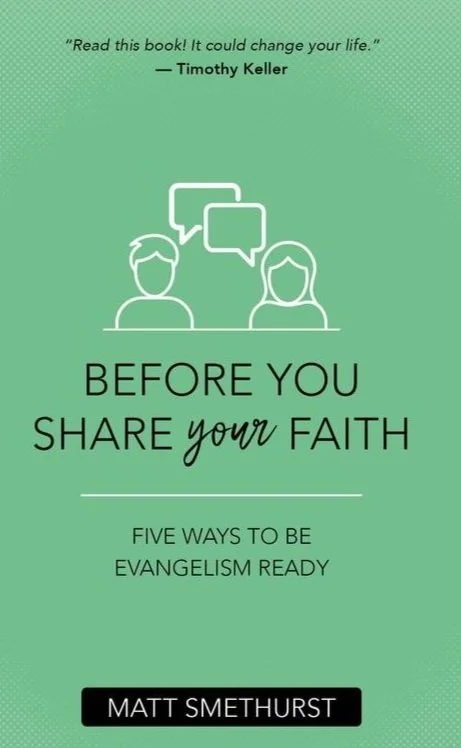Grasping the Gospel
What is an Australian? This question might seem strange since the answer is obvious - an Australian is someone from Australia. And yet if you were to take a random person off the street, would you be able to identify them as Australian? Not just that, the question is what not who. If someone were to self-identify as an Australian, who are we to judge? I’m being sarcastic of course… mostly.
Here’s the point. There are distinctive markers upon which someone can claim to be Australian. It could be an Australian passport, an enduring love for vegemite, or a genuine fear of dropbears. Such things either validate or call into question our identity.
What about Christianity? What is a Christian? Here’s 3 categories to help our thinking.
The way someone lives
The beliefs someone holds
The experience someone has
The gospel is none of those things.
1 Cor. 15:1 Now I would remind you, brothers, of the gospel I preached to you, which you received, in which you stand, 2 and by which you are being saved, if you hold fast to the word I preached to you—unless you believed in vain.
3 For I delivered to you as of first importance what I also received: that Christ died for our sins in accordance with the Scriptures, 4 that he was buried, that he was raised on the third day in accordance with the Scriptures,
The gospel is fundamentally news about an event that took place. It is external to us and is not contingent on anything we say or do. Here’s how the author summarises the gospel.
Ruler
God created, sustains, and rules everything that exists. Contrary to cultural misconceptions, he is not Santa in the sky, nor a cosmic vending machine, nor an irritable drill sergeant, nor a deadbeat dad. He is the King of glory and the Lord of love. In fact, he is an eternal community of persons, a Father loving his Son in the joy of the Holy Spirit. And because this loving and joyful God is Trinity—one God forever existing in three persons—love is at the heart of the universe. (pg. 9)
Revolt
We look for love in all the wrong places, because something has gone terribly wrong in our hearts. (pg. 10)
First, sin is more relational than behavioral. When Adam and Eve rebelled against God, it wasn’t just a behavioral boo-boo; it was a heartlevel betrayal. (pg. 11)
Second, sin is more vertical than horizontal. Its horizontal effects can be devastating, but sin is fundamentally a vertical problem. (pg. 11)
Rescue
We have now reached the white-hot center of the Christian faith: the death of Jesus Christ. On the cross God punished his Son, who is perfect, for the sins of those who are not.
But that’s not the only thing that occurred. If all God did was cancel our sin, that would have simply brought us back to zero.
Think about it this way: there are eighty two games in a National Basketball Association regular season. No team has ever achieved a perfect season—one without any losses. “But wait,” some fan might object. “My team’s record is currently 0-0. That’s a perfect season—we haven’t lost any games!”
To which we would rightly roll our eyes. “Your” team hasn’t lost because they haven’t played all their games. To have a perfect season you must never lose and always win—right through to the very last game.
In the Garden of Eden, Adam and Eve had a moral record, as it were, of 0-0. They hadn’t sinned, so they were “undefeated.” But neither had they achieved a lifetime of righteousness, so it wasn’t a “perfect season.” And when they turned from God, they became spiritually bankrupt. They plummeted to 0-82, the moral record we now inherit.
However, in the middle of history, one man amassed an unprecedented record: 82-0.
Continuing the illustration, here’s the point: if Jesus only paid for our sins, our moral record would be 0-0. But on the cross, Jesus didn’t just absorb our eighty-two losses; he also gave believers his eighty-two victories, certified by his empty tomb (Rom. 4:23–25). So our record shifts, in an instant, from 0-82 to 82-0. In the eyes of a holy God, it’s now as if we’ve done nothing to offend him and everything to please him.
Paul puts it like this, referring to Christ: “God made him who had no sin to be sin for us, so that in him we might become the righteousness of God” (2 Cor. 5:21, niv). To reiterate, on the cross God treated Christ as if he had lived a believer’s sinful life, so that he could treat us as if we had lived Christ’s spotless life. No wonder theologians call this “the sweet exchange.”
(pg. 15-16)
Response
When you pass through a highway toll and interact with the person in the booth, is it a meaningful experience? Not exactly. It’s a business transaction: you pay the money; they raise the bar. You do your part; they do theirs. Becoming a Christian, friend, is not like this. It’s not a cold transaction. It’s more like getting married—an intensely personal union. You throw yourself on Jesus for mercy; he catches you and never lets go. (pg. 20)
Turn from sin. Trust Jesus. Treasure Jesus.

